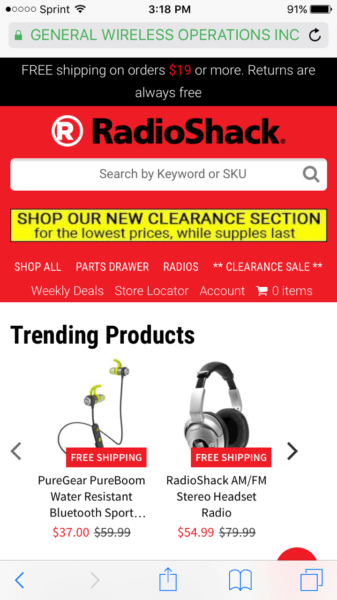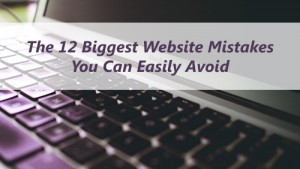As digital assistants become more pervasive, how will marketers adapt? Columnist Scott Rayden outlines the steps you can take to help your brand stay ahead of this emerging trend.

If I were writing this post even a year ago, I’d (still) be focusing on the mobile experience. Even today, more brands than you’d expect aren’t fully optimizing their mobile UX (user experience), even if they have moved to a mobile site.

Tough to know where to look on that page, right? Lots of words, lots of nav options, and if you’re not looking for audio equipment, not much of a head start on what to do next.
That said, the big new device-oriented opportunity on the horizon isn’t mobile optimization (even for brands who aren’t nearly optimized); it’s digital assistants — which may be featured on more devices in the world than there are people by 2021.
Here are some very obvious signs that digital assistants are poised to make a huge impact on the digital marketing landscape (beyond just maps, directions and general knowledge introduced by Apple’s Siri in 2011):
- Walmart is teaming up with Google to offer voice-activated shopping via Google Home.
- Amazon (Alexa), Apple (Siri), Google (OK Google), Bing (Cortana) and Alibaba (Tmall) all have viable digital assistants in the marketplace, and Facebook’s M looms, especially as other ads work their way into the Messenger experience.
- Google’s huge acquisition of HTC has sparked theories that the move is as much to curtail the reach of Amazon’s Alexa as it is about hardware.
So what’s a CMO to do? Advertising opportunities aren’t really available to most brands yet, let alone fully realized. But a whole lot of seeds are being planted.
I would recommend taking a few important steps to position your brand to catch the digital assistant wave.
1. Make sure your partnerships are lined up and working for you
If your products are being advertised on Google, Bing, Facebook, Alibaba or Amazon, make sure your contacts at those companies are fully aware that you want access to all the digital assistant-focused information and betas you can get your hands on. Ensure your team is checking in at least monthly for news and updates.
2. Push to set aside test budget
When advertising opportunities are made available on digital assistants, they shouldn’t take away from what you already have going (unless you see digital assistants cannibalizing volume, which will most certainly happen eventually).
Make sure your decision-makers (or your clients’ decision-makers) are open to setting aside budget to test assistants on different platforms — against both each other and against performance on other advertising channels. The more you prepare for the scenario now, the faster you’ll be able to put it into play when advertising is more widely available.
3. Shore up your voice search SEO
You don’t need to be the expert here, but make sure your teams are following the experts (here’s a good example) and integrating best practices for voice search into their SEO campaigns.
As you do, you should find that voice-search optimization requires more tweaking than major renovation, and a series of even minor adjustments should help your team get more in the mentality of a voice-driven search world.
It’s very possible that we’ll be talking about “the year of digital assistants” for four or five years, like we did with mobile. (“The year of mobile” spanned a couple of Olympic cycles by my count.) But as advertising success gets more and more commoditized, the early adopters will create valuable opportunities to pull away from their competition.
Get your testing strategies in order, and make sure you have an ear to the ground and that your team is fully immersed in voice search, and you’ll position yourself to get far ahead of the curve.
- Part 1: Customer journey — the greatest strategic need
- Part 2: Untangling the web of mobile technology
- Part 3: Media channels (it’s not what you think)
- Part 4: The convergence of UX and performance marketing
- Part 5: The rise of digital assistants
- Part 6: Analytics
Marketing Land – Internet Marketing News, Strategies & Tips
(45)








